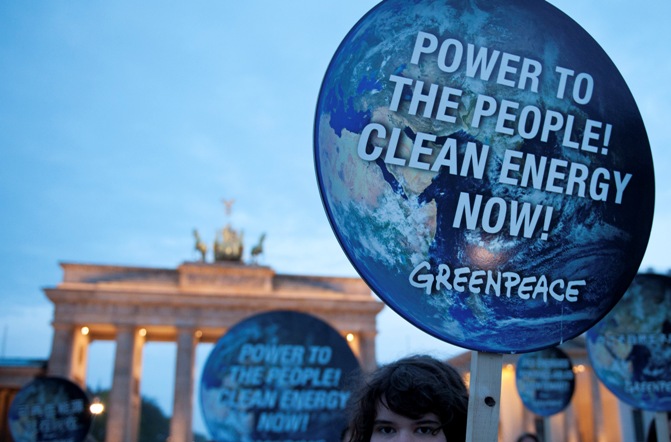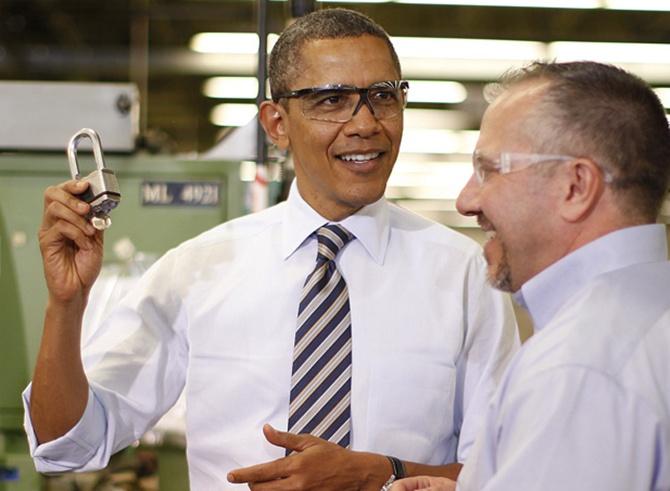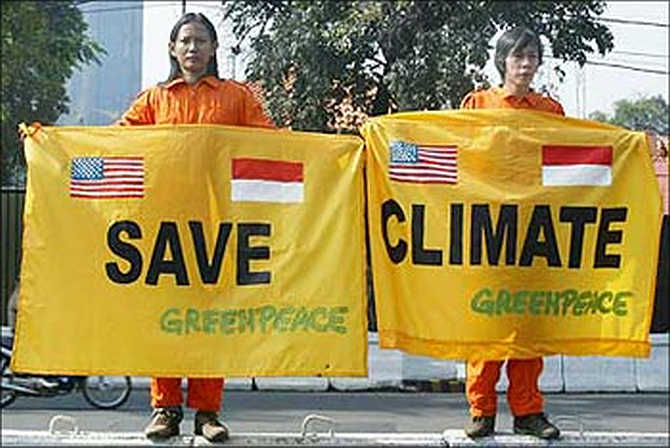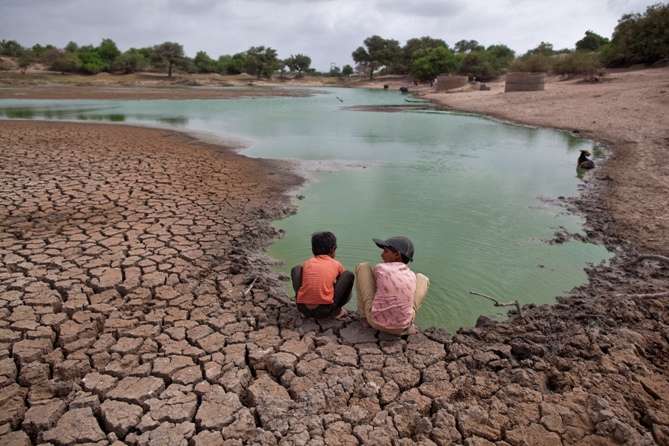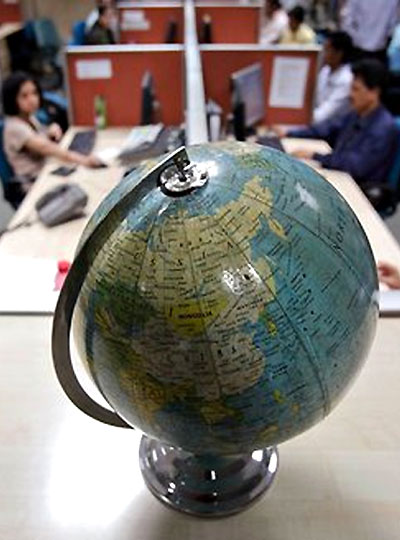 | « Back to article | Print this article |
Obama's clean air policy to benefit India and China
The path breaking clean energy policy unveiled by the Obama administration would put the US at a disadvantage against countries like India and China, top US lawmakers and policy advocacy groups have said.
"It really won't have much impact in terms of emissions because of what less-developed countries of the world like China and India are contributing," Senate minority leader Mitch McConnell told reporters at a joint news conference with other top Republican Senators Roy Blunt, Saxby Chambliss, John Cornyn and John Thune.
Click NEXT to read further. . .
Obama's clean air policy to benefit India and China
On Monday, the US Environmental Protection agency has announced to cut carbon emission from existing power plants, which is the single largest source of carbon pollution in the US, by 30 per cent by the year 2030.
It also announced to cut by 2030 particle pollution, nitrogen oxides, and sulfur dioxide by more than 25 per cent as a co-benefit.
The White House described this as American leadership to the world.
"The proposed rule announced demonstrates US leadership in this important area," the White House Press Secretary, Jay Carney, told reporters.
Click NEXT to read further. . .
Obama's clean air policy to benefit India and China
"I wouldn't predict what specific actions other countries may take, but it stands to reason that leadership by the United States, a demonstration of a seriousness of purpose here, will have at least potentially positive effects on other nations as collectively we address a global challenge," he said.
But Republicans and many others are not willing to buy the argument, according to whom such a policy would put the United States at an disadvantage against countries like India and China.
The United Mine Workers of America international president Cecil E Roberts alleged that the proposed rule issued by the Environmental Protection Agency will lead to long-term and irreversible job losses for thousands of coal miners, electrical workers, utility workers, boilermakers, railroad workers and others without achieving any significant reduction of global greenhouse gas emissions.
Click NEXT to read further. . .
Obama's clean air policy to benefit India and China
"Why on earth should we be willing to sacrifice the lives and livelihoods of thousands upon thousands of our fellow citizens on the naive bet that current and emerging economic competitors like China, India, Brazil, Russia and others will follow our lead?," Roberts said.
Senator Pat Roberts said that as long as large developing countries like Russia, China, India, and Brazil continue increasing their carbon emission on an annual basis, anything the US does will be inconsequential.
"This proposal amounts to all pain and no gain," he said.
"The rising electricity costs that will necessarily follow EPA's new restrictions will reduce Americans' standard of living and give a competitive economic advantage to foreign nations such as China and India," said James M Taylor, senior fellow for Environmental Policy at the Heartland Institute.
Click NEXT to read further. . .
Obama's clean air policy to benefit India and China
Critical of Obama Administration's policy, Congressman David McKinley said that countries like India and China are going to benefit.
"For President Obama's climate change policies to work, the rest of the world would need to be in lockstep with us," he said.
"While he may be able to circumvent Congress, issue executive orders, and use regulatory agencies to accomplish his goal at home, this authority doesn't extend to the rest of the world.
“Countries like China and India are not following the same path," he added.
"These regulations will benefit China, India, and other rising economic competitors at the expense of American workers," said Congressman Keith Rothfus.
Click NEXT to read further. . .
Obama's clean air policy to benefit India and China
The House Science, Space, and Technology Committee Chairman Lamar Smith said that Obama's plan forces costly and unnecessary regulations on hardworking American families.
"The Clean Air Act was never intended to regulate carbon.
“The EPA's plan is 'all pain, no gain. It will close power plants and drive up electricity prices.
“These regulations will mean more jobs lost to places like China and India," he said.
Senator David Vitter said this rule is expected to have a less than two percent impact on carbon emissions reductions because it will not impact the world's largest carbon emitters like China, India and Russia.
